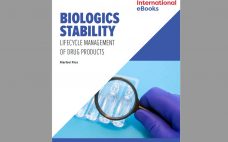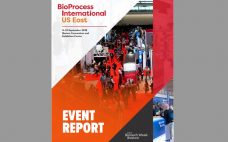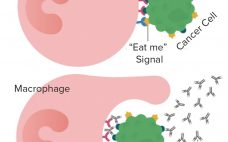Biopharmaceutical researchers are focusing on novel platforms to quickly develop bispecific antibody (BsAb) therapies for treating complex diseases such as cancer. BsAb therapies offer several advantages because they are designed to bind two unique epitopes. In this report, Bill Lundberg, president and chief executive officer at Merus, describes his company’s efficient approach to developing BsAbs using “common light chain” technology and other proprietary strategies. Lundberg also addresses the company’s approach to typical BsAb development and manufacturing challenges. Fill out the…
Author Archives: Maribel Rios
Scalable Manufacturing of Lentiviral Gene Therapies
Lysosomal storage diseases are caused by mutated genes that express defective lysosomal proteins, such as essential enzymes. For example, cystinosis is a metabolic disease caused by a defective gene that encodes cystinosin, an exporter protein (Figure 1). Avrobio develops gene therapies to treat lysosomal storage diseases. On 8 October 2019, the company announced that its first patient had been dosed in the AVR-RD-04 investigational gene therapy program, which involves genetic modification of the patient’s own hematopoietic stem cells to treat cystinosis.…
eBook: Sensor Technologies — Essential Tools for Bioprocessing 4.0
Sensors are essential devices that can be used for most, if not all, typical biopharmaceutical development and manufacturing processes to monitor fundamental process parameters such as flow, temperature, pH, and dissolved oxygen throughout all process stages. As the bioindustry progresses toward automation, digitalization, and other “Manufacturing 4.0” concepts, robust single-use and smart sensors for bioprocess monitoring will be needed. Read this BPI eBook to garner valuable perspectives on both of these types of sensors. Discussions herein focus on smart sensor…
eBook: Biologics Stability — Lifecycle Management of Drug Products
The biomanufacturing industry’s increasing attention to risk mitigation through quality by design (QbD) and the emergence of complex therapeutic modalities have driven the need for a lifetime-management approach to assuring drug product stability. To that end, industry guidelines have been (or are being) developed to guide the industry toward a “holistic approach” to conducting stability assessments. However, not all methods are stability indicating, and many more industry concerns need to be addressed. This BPI eBook offers perspectives on ICH Q12…
Analytical Testing Strategies for CAR T-Cell Products
Assay lifecycle development for traditional biopharmaceuticals such as vaccines and monoclonal antibodies (MAbs) has a clearly defined pathway, from preclinical method selection, development, and optimization through the milestones in preclinical phase trials, and finally to postlicensure method evaluations, comparability, and improvements. The analytical development roadmap for nontraditional biologics such as chimeric antigen receptor (CAR) T-cell therapies and gene therapies are not as clearly defined and can present many challenges along the way. Understanding the “what, how, and when” of analytical…
BioProcess International 2019 Event Report
The 2019 BioProcess International Conference and Exhibition, held in Boston, MA from 9–12 September, was a testament to the rapid expansion of the biopharmaceutical industry. Nearly 150 speakers chronicled recent developments and continuing challenges in upstream production, downstream processing, drug product manufacturing, and emerging therapies production. And with more than 150 poster presentations and over 200 companies participating, the BPI exhibit hall never better embodied the industry’s efforts to support increasingly diverse but related audiences. In this event report, BioProcess…
Technology Highlights from the 2019 BioProcess International Conference
This year’s BioProcess International Conference and Exhibition, held 9–12 September 2019, hosted nearly 200 exhibitors showcasing technical innovations for the biopharmaceutical industry. This year’s conference sessions also included daily technical workshops detailing supplier solutions and technologies. Below are some notable technologies featured that demonstrate the industry’s dedication to finding new ways to help manufacturers shorten time to market. Most systems offer the benefits of single use, integration, process control, economies of scale, automation, and closed-system processing. Upstream Production The exhibit…
Smart Sensors and Data Management Solutions for Modern Facilities
Bioprocess manufacturers continue to seek technologies for increasing productivity and shortening timelines from discovery to commercialization. Innovations such as high-throughput systems, automated platforms, and the latest clarification systems all have made processes efficient and robust. And with the increasing adoption of quality by design (QbD) principles, including the use of process analytical technologies (PAT), biomanufacturers are mitigating the risks of errors in their operations better than ever before. A critical part of mitigating risk is gathering meaningful process data and…
CMC Development Platforms and Outsourcing to Reduce Timelines
Forty Seven is a company developing novel therapies based on anti-CD47 and other immuno-oncologies. CD47 is called the “don’t eat me” signal that cancer cells give out to escape elimination by the body’s immune system. Qinghai Zhao, vice president of technical development and manufacturing, is one of the scientists working on the company’s magrolimab (5F9) monoclonal antibody that is designed to block the binding of the CD47 signal to the cell receptor SIRP-α while boosting the “eat me” signal that…
eBook: Autologous Cell Therapies: Commercialization Strategies
Autologous cell therapies are derived from a patient’s own stem cells, typically collected from bone marrow. Those cells are then cultured, expanded, and reinfused back into the patient. Unlike allogeneic cell therapies, this process is repeated for each dose and for one patient. The one-to-one process carries several challenges to commercialization, including high development costs, the need to control the risks of manual processing, and compliance with strict timelines. This eBook presents two perspectives on addressing these challenges. The first…










